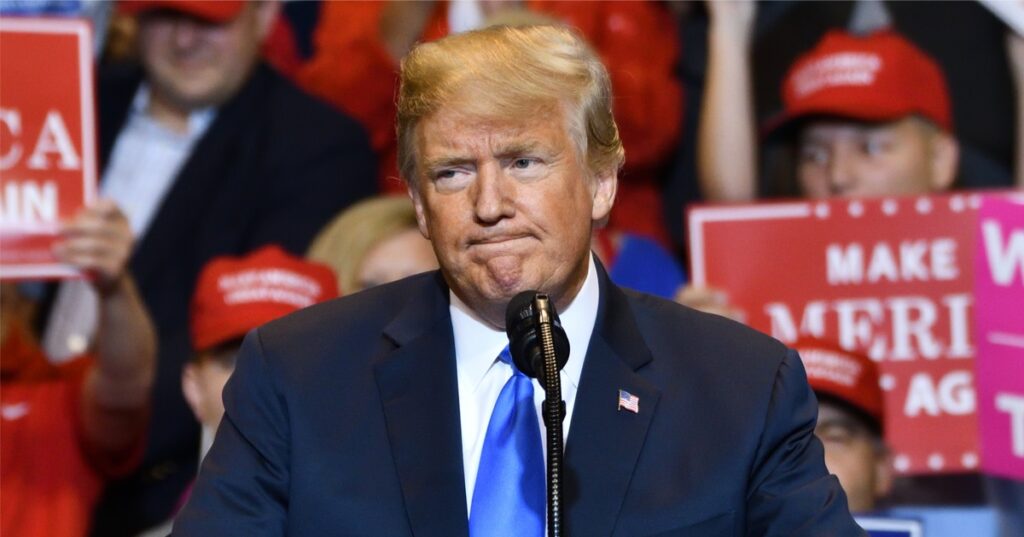President Trump has proposed working with Democrats to replace ObamaCare as enhanced subsidies face expiration amid shutdown talks, arguing the system is broken and that any fix should lower costs, improve care, and curb excessive insurer profits.
On Wednesday, speaking to reporters aboard Air Force One en route to South Korea, Trump tossed out a bold idea—working with Democrats to craft a replacement for ObamaCare, a system he’s long criticized as ineffective while grappling with the looming expiration of enhanced subsidies amid government shutdown talks. The suggestion was unexpected from a leader who has spent years blasting the law, and it immediately put a spotlight on whether practical compromise can come from an unlikely place. Republicans should view this as an opportunity to push reforms that actually reduce premiums and expand access without expanding Washington control.
ObamaCare has been a consistent target for conservatives because of its rising costs and uneven results. He’s called it a broken mess, with premiums climbing while insurance giants rake in profits, and many voters agree that the status quo is failing families and small businesses. The case against the law is not just political rhetoric; for millions it has meant higher out-of-pocket costs and shrinking choices in local markets.
Trump’s message on Wednesday mixed criticism with an olive branch toward Democrats, signaling a possible pivot from relentless opposition to practical engagement. “We have to fix health care, because ObamaCare is a disaster,” he declared, using blunt language that resonates with conservative voters frustrated by spiral costs. That line makes it clear the goal is replacement, not patchwork maintenance of a system conservatives view as fundamentally flawed.
The most urgent problem is the impending expiration of enhanced subsidies that helped many keep premiums affordable during recent years. Those tax credits are at the center of shutdown negotiations, and Democrats have made extending them a condition for supporting any spending bills. If the subsidies lapse, carriers may raise prices further and more families will be priced out of coverage, creating real political pressure on both parties.
Republicans have long criticized these subsidies as unsustainable and inefficient, but the party has struggled to present a clear, workable alternative that voters can trust. Trump’s willingness to talk to Democrats could force Republicans to move from broad criticism to concrete policy proposals that actually lower costs. If conservatives want to protect American families, now is the time to put forward serious ideas instead of just slogans.
Trump also singled out insurance companies for profiting under the current system, calling attention to how a public program can enrich private firms while leaving patients behind. “They’re making a fortune,” he said, though he also acknowledged insurers have a right to earn money. That mix of free market support and populist fairness is familiar ground for many Republican voters who favor competition but reject exploitation.
There are practical hurdles to any bipartisan effort: Democrats will likely insist on keeping core ObamaCare structures, while some Republicans will refuse to accept any plan built on that foundation. Compromise will require moving past symbolic victories to real tradeoffs, and that will mean Republicans must identify which principles are nonnegotiable and which can bend for better outcomes. The calculus is political and policy-driven at once.
A potential Republican advantage in such talks is the ability to press for reforms that emphasize competition, portability, and consumer choice, all while protecting the most vulnerable. Policies that expand health savings accounts, increase transparency on pricing, and allow insurance to cross state lines could be part of a conservative package. Voters may be more receptive to change if they see tangible reductions in premiums and deductibles rather than abstract promises.
On the other side, Democrats will push to preserve coverage levels and subsidy assistance for lower-income Americans, and that makes any deal politically complex. But that complexity does not mean talks should be avoided; it means negotiators must be honest about tradeoffs and focused on measurable improvements. A realistic deal would require both sides to accept imperfect gains rather than hold out for total victory.
For now, the clock is ticking as shutdown negotiations and subsidy timelines collide, creating urgency that could either force action or deepen gridlock. If leaders seize the moment, they could craft reforms that win public approval and reduce the pain families feel at the pharmacy counter. If they don’t, Americans will keep paying higher premiums and watching insurers pad their profits while Washington argues.
Trump’s outreach is a test of conservative strategy: stay rigid and score rhetorical points, or engage and try to secure policy wins that matter. Either way, the coming weeks will reveal whether Washington can stop treating health care as a partisan sport and start treating it like a problem that demands real solutions.



